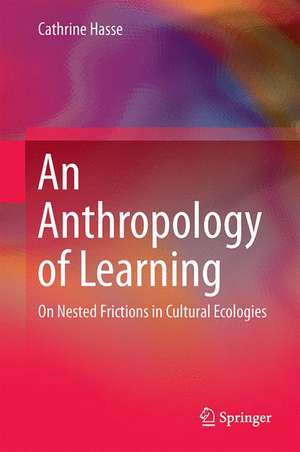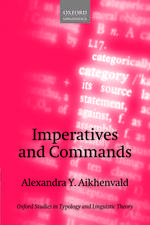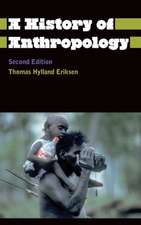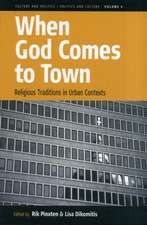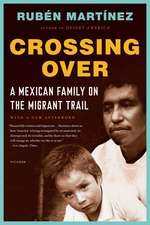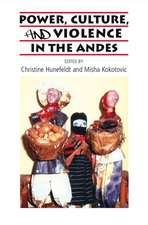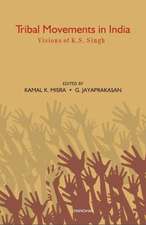An Anthropology of Learning: On Nested Frictions in Cultural Ecologies
Autor Cathrine Hasseen Limba Engleză Hardback – 15 dec 2014
| Toate formatele și edițiile | Preț | Express |
|---|---|---|
| Paperback (1) | 887.42 lei 6-8 săpt. | |
| SPRINGER NETHERLANDS – 20 aug 2016 | 887.42 lei 6-8 săpt. | |
| Hardback (1) | 735.27 lei 6-8 săpt. | |
| SPRINGER NETHERLANDS – 15 dec 2014 | 735.27 lei 6-8 săpt. |
Preț: 735.27 lei
Preț vechi: 896.67 lei
-18% Nou
Puncte Express: 1103
Preț estimativ în valută:
140.69€ • 146.89$ • 116.44£
140.69€ • 146.89$ • 116.44£
Carte tipărită la comandă
Livrare economică 04-18 aprilie
Preluare comenzi: 021 569.72.76
Specificații
ISBN-13: 9789401796057
ISBN-10: 940179605X
Pagini: 332
Ilustrații: IX, 320 p. 5 illus.
Dimensiuni: 155 x 235 x 25 mm
Greutate: 0.66 kg
Ediția:2015
Editura: SPRINGER NETHERLANDS
Colecția Springer
Locul publicării:Dordrecht, Netherlands
ISBN-10: 940179605X
Pagini: 332
Ilustrații: IX, 320 p. 5 illus.
Dimensiuni: 155 x 235 x 25 mm
Greutate: 0.66 kg
Ediția:2015
Editura: SPRINGER NETHERLANDS
Colecția Springer
Locul publicării:Dordrecht, Netherlands
Public țintă
ResearchCuprins
Foreword.- 1. Introducing the engaged anthropologist.- 2. Culture as contested field.- 3. Collective and social cultures.- 4. Position matters!.- 5. Social designations of cultural markers.- 6. Learning from culture contrast.- 7. Towards nested engagement.- 8. Future zones of development.- 9. Epilogue. Index.
Textul de pe ultima copertă
This book deals with the black box of social science methodology: participant observation. From the perspective of anthropology, it explores the difference between an ethnographer as participant observer and any other participant. It discusses and gives insight into what participant observers do before they write their texts. It explains how they learn to engage with other people’s cultural ecologies and develop relational expertise. Showing that anthropology is a craft of cultural learning processes, the book introduces the engaged participant observer as an expert ethnographer capable of aligning engagements with others. It argues that culture as representation is replaced by culture as a frictioned learning process through which collective and social cultures emerge. To advance understanding of the ethnographer’s learning process, the book introduces a new methodological vocabulary of cultural learning processes that is based on a diffracted reading of ethnography, anthropological theory, post-phenomenology, feminist materialism and cultural-historical activity theory.
Caracteristici
Provides a new understanding of the method of participant observation Shows how materials, culture and learning are connected in fieldwork research methods Presents a new theory of cultural learning processes Offers a new approach to culture as produced by frictions and ejections Includes supplementary material: sn.pub/extras
